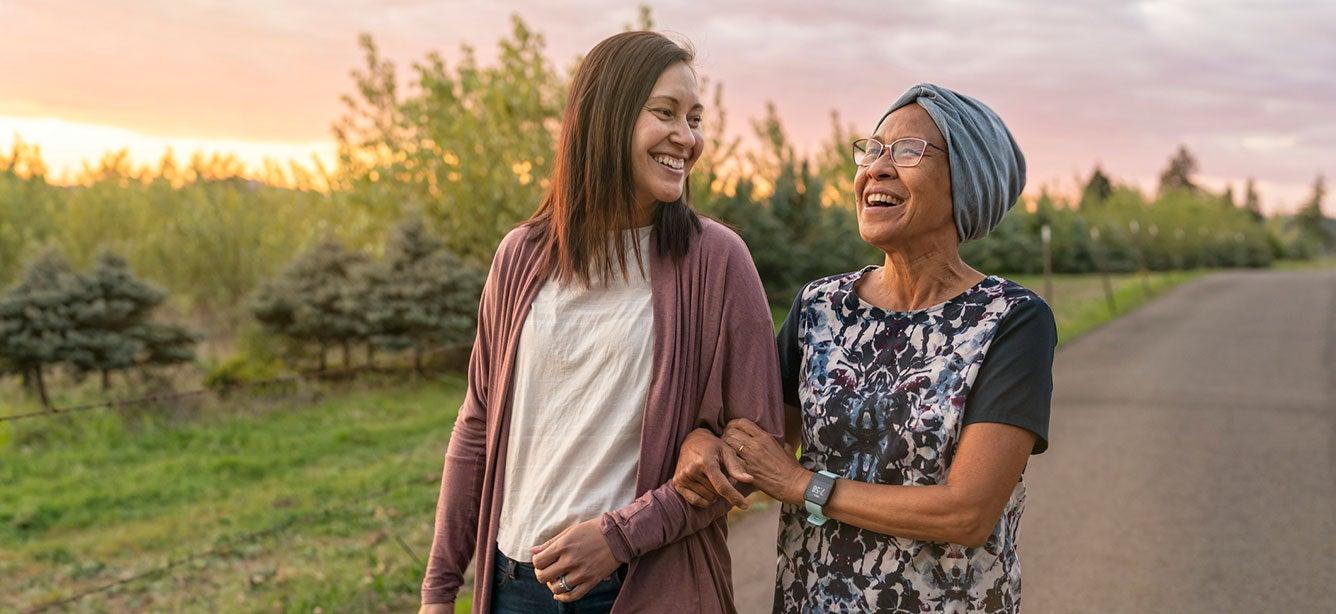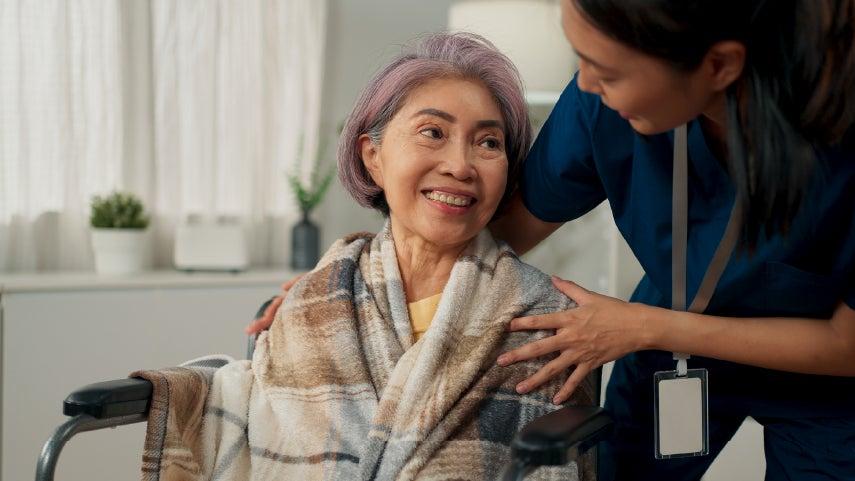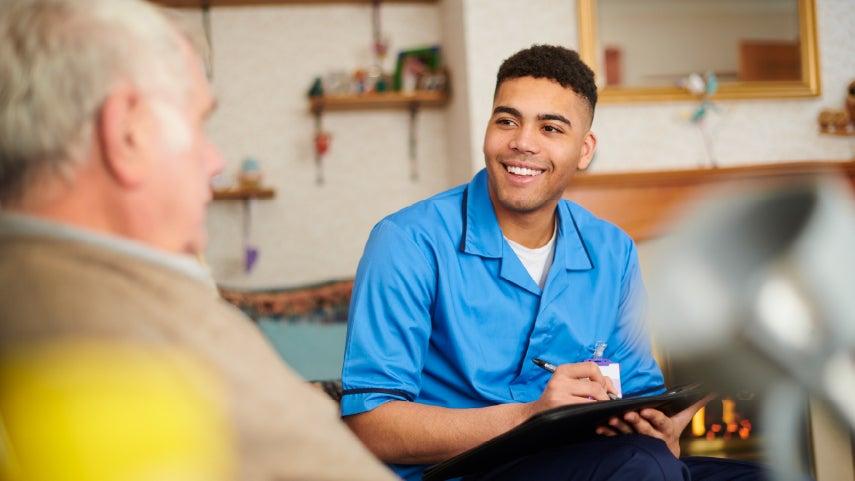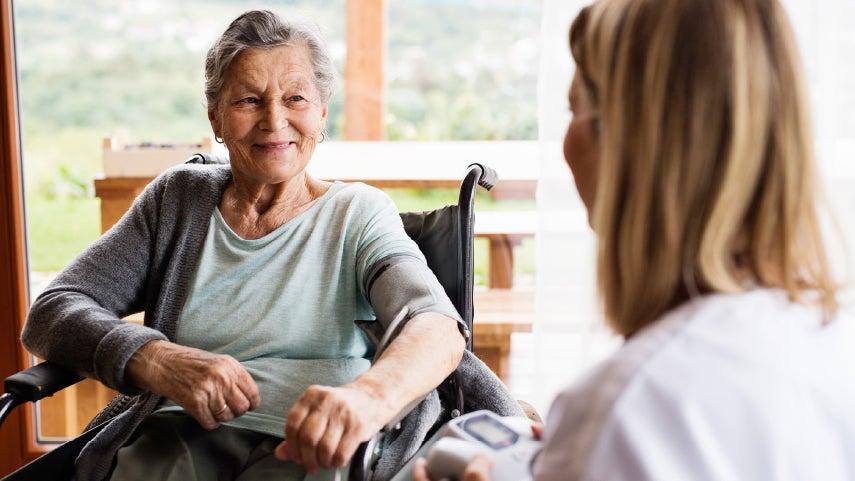
Related Topics
The impact of the pandemic’s forced isolation has been profound for older adults, affecting their mental and physical health, and, in many cases, their living environment and routines. More than 12 million older Americans currently live alone.1
And with families relying on technology to virtually celebrate birthdays, holidays and other events, the pandemic created a gap in face-to-face “check-ins” with aging family members—the opportunity to see how things are going, assist with errands or tackle a home repair.
Millions of older Americans are in the category of not needing the round-the-clock services of a skilled nursing facility or even the clinical services of a visiting nurse, but would benefit from assistance with aspects of their home lives that do contribute to their physical and mental health. This may include:
- Technology assistance
- Meal preparation
- Lght housework
- Transportation to and from doctor’s appointments
- Perhaps most crucially, social interaction
It may be hard to decide when and where a second set of hands is needed. How can adult children ensure our parents and grandparents receive a helping hand when we’re not around?
Below are four signs that additional help, in the form of a companion, could be useful to improve the health and overall well-being of a loved one.
Caregiver checklist: Signs your loved one could need additional help
Repeated comments about loneliness—Some older adults may not outright express feelings of despair, but according to the University of Michigan’s National Poll on Healthy Aging, one in five older adults reported experiencing worse depression or sadness since the start of the pandemic.2 Whether due to a decline in social interactions, the passing away of peers, or less frequent trips outside the house, loneliness can significantly impact a person’s health, increasing their risk of heart disease, stroke, diabetes, depression and dementia, among other impacts.
Lack of nutritious food in the home—Having consistent access to healthy food is critical as food insecurities contribute to an additional 11% in annual health care costs and increase the likelihood of emergency department visits and hospital admissions by 50%.3 Check the refrigerator and cupboard of your loved one for healthy food options. A lack of fresh options, like vegetables, or a pantry with lots of expired items, could be a sign they’re having difficulty getting to the grocery store on a consistent basis, something a companion could help arrange.
Neglected housekeeping and home maintenance—As we age, general housekeeping and home repairs can become more difficult. Even simply changing a lightbulb can be a burdensome, and potentially dangerous, task for those living alone. If your loved one expresses difficulty in keeping up with chores, a companion may be able to assist with light cleaning around the house, helping with things like grabbing the mail or hanging a picture on the wall. Companions can also provide an extra set of eyes, checking for fall hazards, like uneven floorboards.
Increased isolation due to lack of consistent transportation—Coordinating rides to medical appointments, the grocery store or simply to see a friend can be challenging for older family members. The logistics can also be stressful for a primary caregiver, who can often end up as the main or only source of transportation. If a loved one is spending more time at home, a companion could help ensure he or she is able to get out, sharing the burden of providing a ride or coordinating logistics.
What kinds of services can help fill the caregiver gap?
Caregiving is a challenging role—even when it’s done for those we love most. If one or more of these signs exist for an older adult in your life, there are services that can help fill this gap in companionship and in-home support.
Many health plans have recognized the need to address loneliness and use companionship to identify and solve for issues like loneliness or lack of transportation access, and are working with companies, such as Papa, to support their members. Papa matches seniors with a Papa Pal, a companion to provide assistance with errands, transportation, and technology assistance as well as to provide needed human connection. For more information on Papa’s services, or to learn more about how companion care can be beneficial, visit https://www.papa.com/.
NCOA hosts the annual Older Adult Mental Health Awareness Day to highlight critical issues in addressing mental health needs as we age.
This article is supported by the Administration for Community Living (ACL), U.S. Department of Health and Human Services (HHS) as part of a financial assistance award totaling $5 million with 100% funding by ACL/HHS. The contents are those of the author(s) and do not necessarily represent the official views of, nor an endorsement, by ACL/HHS, or the U.S. Government.
Sources
1. By the numbers: Older adults living alone. May 2016. American Psychological Association. Found on the internet at https://www.apa.org/monitor/2016/05/numbers
2. National Poll on Healthy Aging. University of Michigan. Found on the internet at https://www.healthyagingpoll.org/
3. Berkowitz SA, Seligman HK, Meigs JB, Basu S. Food insecurity, healthcare utilization, and high cost: a longitudinal cohort study. Am J Manag Care. 2018;24(9):399-404. Found on the internet at https://www.ncbi.nlm.nih.gov/pmc/articles/PMC6426124/


